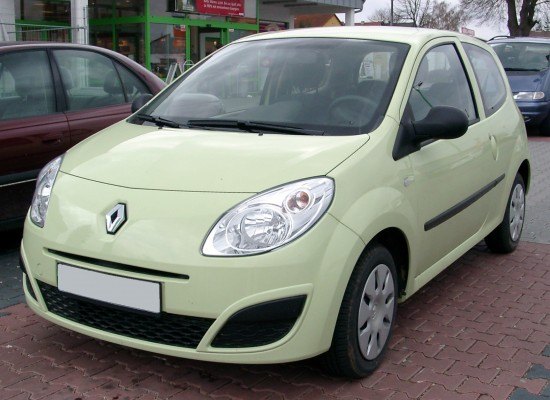Renault, PSA Face Unprofitable Paradox
Prevailing wisdom today holds that small cars, manufactured in developed economies are some of the least profitable cars in existence. So why do companies like Peugeot, Citroen and Renault persist in producing them?
In article in La Tribune (France’s leading business paper) explains why. Once upon a time, when Giscard d’Estaing ruled and the Fifth Republic was just being digested after a spicy summer of 1968, France decided to tax big cars, in the name of Liberté, égalité, fraternité. Since the biggest market for French cars was France, Renault, Citroen and Peugeot decided to switch to producing small cars – the Citroen SM was a footnote, rather than a mainstay of France’s auto industry, despite what the buff books tell us.
Up until recently, things were tries bien. Renault, for example, sold nearly half a millio Clio and Twingo models in 2012 alone. Not bad for a company that mostly plays in Europe, but these cars are also not so profitable. Renault is able to produce these cars in Turkey and Slovenia respectively (with some Clio production still kept in France) which takes away some of the sting.
Over at PSA, things are much more dire. Small cars (B and C segment, for clarification’s sake) make up about 45 percent of their sales, but a good chunk of them are built in France. Workers there earn 35 euros an hour, compared to 22 in Spain and just 10 per hour in Slovakia. PSA’s CEO told La Tribune that a new Peugeot 208 built in Slovakia would save an astonishing 700 euros per car, along with the contentious labor negotiations that go hand in hand with French organized labor. At Renault, the cost difference is even more staggering, with 1300 euros saved on the Clio when it’s built in Turkey. Any surprise that since 2005, both companies have cut their domestic production in half? The strong social safety net and egalitarian society designed to protect the workers has ultimately resulted in a contribution to their declining fortunes.
Ironically, the small car segment, for all the talk about shrinking profits, is growing in France. Registrations have continuously increased since 2007, from 45 percent of all cars to 53 percent in 2012. But the only way for car companies to make any money is to wither away domestic production in favor of the Dacia approach; old technology, no frills packaging and ultra-low cost production in developing economies. So far, only Renault has this capability. PSA is trying it’s hand at the Fiat and Mini approach, positioning Peugeot and the Citroen DS line as “premium” small cars, in the hopes of squeezing some more margin from their products. Given the increasing stratification in the European car market (where only the high and low ends can make any money) it is a risky approach. But not everyone wants to drive a Dacia, and not everyone can afford a Benz.
More by Derek Kreindler
Latest Car Reviews
Read moreLatest Product Reviews
Read moreRecent Comments
- Kwik_Shift_Pro4X Neither. They're basically the same vehicle.
- Analoggrotto 1. Kia Sportage2. Hyundai TucsonRugged SUVs which cater to the needs of the affluent middle class suburbanite which are second only to themselves, these are shining applications of Hyundai Kia Genesis commitment to automotive excellence. Evolving from the fabled Hyundai Excel of the 90s, a pioneering vehicle which rivaled then upstart Lexus in quality, comfort and features long before Hyundai became a towering king of analytics and funding legions of internet keyboard warriors.
- FreedMike Comparison: RAV4 versus CR-V. Who wins? Mazda CX-5 Turbo.(Sorry, the Toyota and Honda are both deadly dull to drive.)
- Ajla 1. RAV4 Hybrid2. CRV Hybrid 3. RAV4 2.54. RAV4 Prime5. CRV 1.5T
- MaintenanceCosts If only it had a hatch. The Model S is so much more practical, has similar performance in non-Plaid form, and is $20k more - and the $20k premium seems almost worth it just for the hatch.


































Comments
Join the conversation
"but a good chunk of them are built in France. Workers there earn 35 euros an hour," I bet assembly line workers don't, on average, without overtime. 35 hours*52weeks*35 euros is 64000 euros, or 85000 dollars. Prove it. 100 of your paltry US dollars says I'm right. You have my email.
I do believe the French will not be able to change labour practices very easily. Hollande will further reduce Frances competitiveness even further. Not only France but much of Europe will soon realise that protecting the labour force will produce inefficiencies and reduce competitiveness. But like th US the French and most of the Euro area's people don't want to change their ways. The only way for France and the rest of the Euro area to get back on their feet is to reduce the value of the Euro and restructure their economies. The major OECD economies aren't competitive after years of confusing and extensive trade barriers in the form of ridiculous regulations across all industries not only the automotive industry. After re-unification in the 90s the Germans started to restructure their economy, but they will gradually be tied up in the "Southern Countries" woes including France. When at my uncle's in the south of France they love to have their ce est, a couple of hours off at lunch. At least Renault has Nissan, just like Fiat has Chrysler.